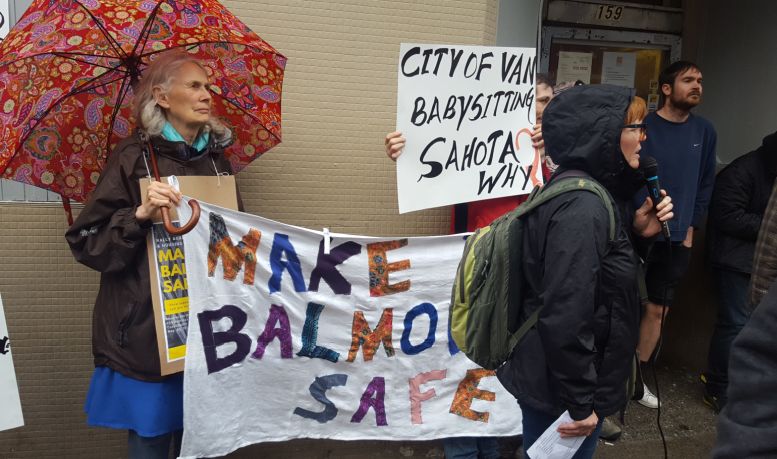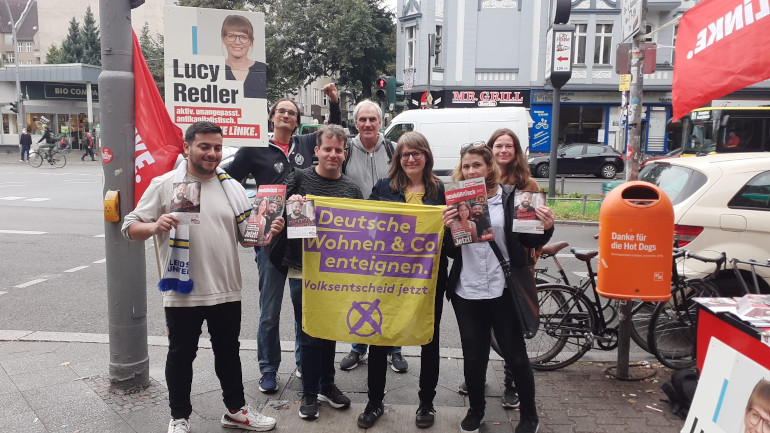One unelected Supreme Court judge has overturned the democratic decision of the City of Vancouver. The ruling backs the greed of landlords over the need of people.
In November 2021, Vancouver council agreed, with only one vote against, to implement rent control on Single Room Accommodation (SRA). These small units, about 100 square feet and concentrated in downtown Vancouver, are often the last resort for housing before homelessness. Many residents are on welfare, disability or pension, all fixed income. About 6,700 live in some 157 SRA buildings, half of which are run by for-profit owners. Due to a big hole in BC’s rental legislation, there is no limit on how much a landlord can increase the rent on a unit when it is vacant. This gives landlords a big incentive to find ways to push people out of their home. The landlord can claim the unit needs renovations — prompting renovictions. In some cases, the landlord either bribes or harasses tenants to leave. The number of SRAs has fallen sharply in recent years as landlords convert the units into micro-units, renting for over $1,000 a month. Average rents on the remaining SRAs have soared — city staff stated that without action the average rent on an SRA would increase from $561 a month in 2019 to $768 by 2029.
In response to this growing crisis, Councillor Jean Swanson proposed action and Vancouver City Council brought in a licensing bylaw to restrict the increases in rents between tenancies — what is called vacancy control.
Courts Back Big Business
176,450 people voted in Vancouver’s last election and one appointed judge can overrule the council’s decisions! So much for democracy.
In a decision announced on August 3, Justice Karen Douglas claimed that the City could not use its power to licence business to set rules. All SRA landlords need a business licence from the city to operate, yet the judge ruled the city cannot set conditions for the licence.
The judge argued that the bylaw was ultra vires. No, this is not a new super variety of COVID. It is a Latin phrase that means the city acted beyond its legal powers. To ordinary people it seems entirely reasonable for the City Council to set rules about what happens in the city. A resident of Vancouver acts within laws set by the federal government, the province and the city. But landlords, according to Justice Douglas, seem to be different, with less responsibilities than people.
Marx once wrote that conditions determine consciousness. This probably applies to judges. BC’s Supreme Court judges have an annual income of $338,800, that is $928 a day. A single person in BC on welfare receives $935 a month. No wonder the judge does not understand the desperate situation of people living in SRAs and cares more about the landlords’ profits.
Of course, the decision will be appealed and may be overturned. However, the pattern of recent decisions makes clear that Canada does not have a justice system — it has a legal system, where the thumb of the rich and powerful tilt the scales in their favour.
Some other recent decisions of BC’s Supreme Court follow a pattern of favouring corporations.
The Supreme Court in December 2019 issued an injunction against members of the Wet’suwe’ten Nation, who were defending their traditional lands against invasion by Coastal GasLink. This injunction paved the way for the RCMP’s repeated assaults on the Wet’suwe’ten. This decision ignores that the BC legislature had recently passed the The UN Declaration on the Rights of Indigenous Peoples Act, establishing the United Nations Declaration on the Rights of Indigenous Peoples as the Province’s framework for reconciliation. The UN Declaration requires free, prior and informed consent for action on Indigenous territory. It also ignores the 1997 Supreme Court of Canada ruling Delgamuukw v. British Columbia that confirmed the Wet’suwet’en never gave up their Rights and Title to some 22,000 square kilometres of territory and hereditary chiefs remain responsible for overseeing it.
In 2019, BC’s Supreme Court ordered members of Unite Here Local 40, fighting for their jobs, to stop having such noisy picket lines. Hotels across BC have used COVID layoffs as an excuse to not rehire laid-off workers and the picket lines were part of the union members’ campaign to get their jobs back.
There is a pattern to these decisions — the bosses’ profits come before low-income renters, Indigenous people and workers. First Peoples Law points to injunctions increasingly being used against Indigenous peoples, stating that, “court decisions have followed a trajectory which directly undermines the protection of Indigenous rights.” A recent report on Saskatchewan courts stated that, “the employer’s ability to immediately obtain a Court injunction … to restrain labour picketing has significantly limited, if not eliminated, the ability of union members to use picket lines as a means of exerting economic pressure on an employer.”
Will NDP Finally Act?
Now that the Court has overturned Vancouver’s bylaw to protect tenants, will the BC government finally act to tackle the mounting crisis for working-class renters? There are a host of steps BC’s NDP could do including:
- Ensuring that rents are tied to the unit so they cannot be jacked-up between tenants. This would slow overall rent increases and reduce the push by landlords to kick people out of their homes for spurious reasons.
- Allowing municipalities to bring in progressive property taxes, a “Mansion Tax” on expensive houses, as well as lower property taxes on small family business compared to corporations.
- Massively increasing public investment from the province in actual affordable housing. The average wage in BC is $5,000 a month, with over half the population earning less. So at least half of all new one-room apartments should rent for 30 percent of that, $1,500 a month (Canada’s definition of affordable rent is no more than 30 percent of income).
- Requiring all new private developments to ensure any tenants living in a demolished building have the right to return at the same rent as before and at least 50 percent of all new units to have rents that are genuinely affordable.
- Significantly increasing welfare rates.
All of these are eminently sensible and have been put to the NDP many times. After five years in government, it is long past time that the NDP finally takes action to tackle BC’s housing crisis.




